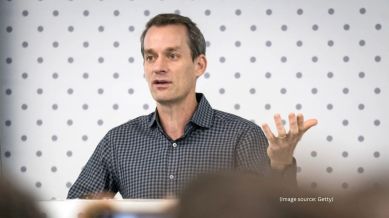‘Most people are not that good at…’: Google DeepMind’s Jeff Dean says today’s AI is already ahead of average humans
Speaking on the Moonshot Podcast, Dean said that current AI systems are “better than the average person at most tasks” that don’t involve physical work.

As artificial intelligence continues to advance, one of the biggest debates in tech is whether machines will eventually outperform humans across most domains, or even reach the much-hyped stage of Artificial General Intelligence (AGI). Google DeepMind’s chief scientist Jeff Dean isn’t keen on using the AGI label, but he does believe today’s models are already ahead of the average human in many everyday tasks, but with some caveats.
Speaking on the Moonshot Podcast, Dean said current AI systems are “better than the average person at most tasks” that don’t involve physical work. “Most people are not that good at a random task if you ask them to do something they’ve never done before, and some of the models we have today are actually pretty reasonable at most things,” he explained.
Watch the video:
On whether AI could soon make discoveries faster than humans, Dean suggested we may already be at that point in certain domains. “We’re actually probably already close to that in some areas, and I think we’re going to broaden out that set of domains,” he said, pointing to the potential of automation and computation to accelerate breakthroughs in science and engineering over the next two decades.
Still, Dean steers clear of calling this AGI. “The reason I tend to avoid AGI conversations is that lots of people have very different definitions of it, and the difficulty of the problem varies by factors of a trillion,” he noted.
Interestingly, his boss, DeepMind CEO Demis Hassabis, has been far more bullish. In a recent interview with WIRED, Hassabis predicted AGI could be achieved within the next five to ten years.